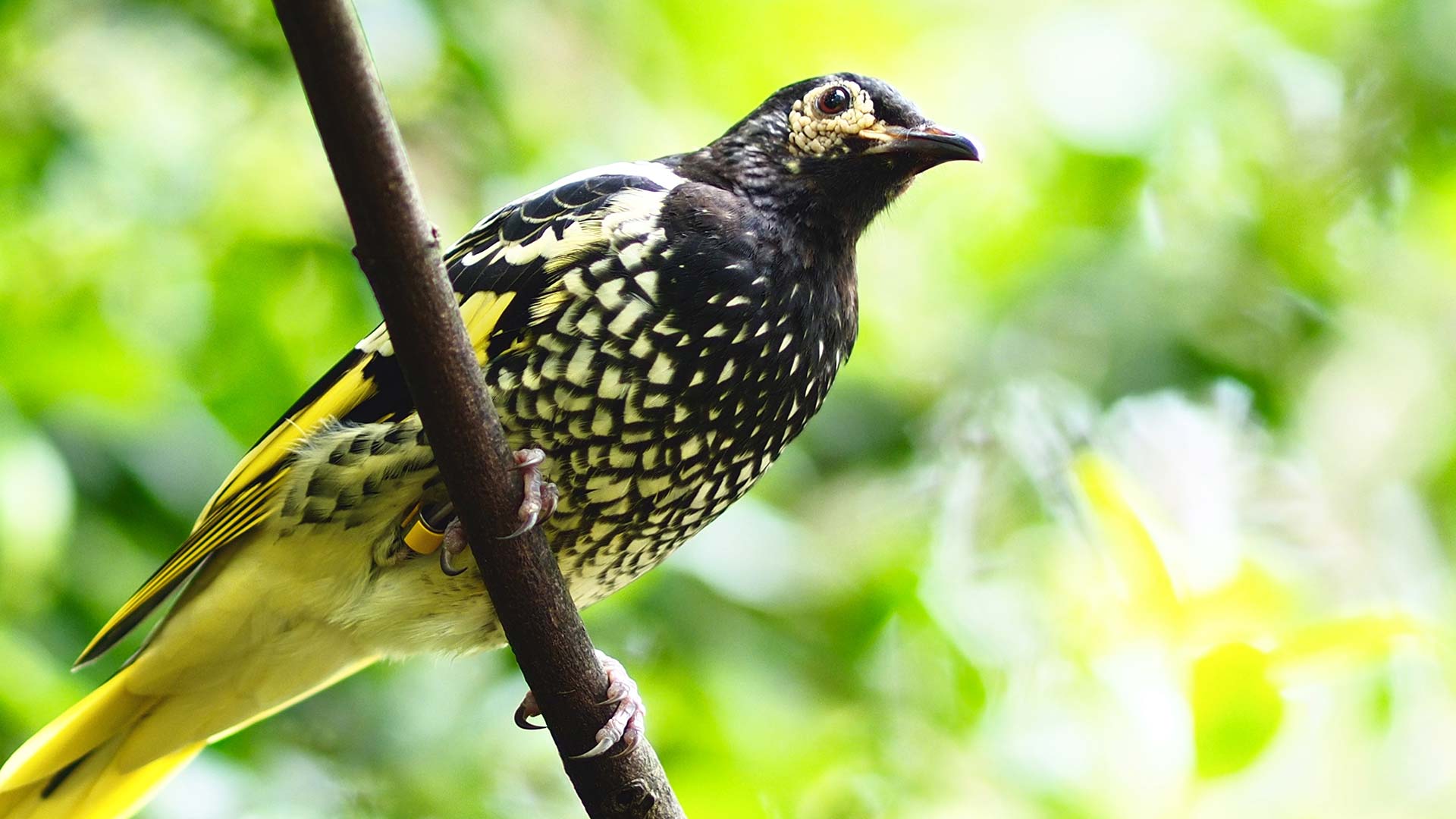A new study suggests a rare Australian songbird’s existence is under threat. What happens to a species if the music starts to die, or their songs become corrupted, or their singers have never heard the original tunes?

A new study has found that a loss of melody and song could be a bad sign for one of Australia’s rarest songbirds – the regent honeyeater. The distinctive black and yellow bird, once common across Australia, is now a critically endangered species, with just a few hundred left in the wild.
Scientists believe their population is dwindling as they are losing their ‘song culture’, with very few adult birds around to teach them mating songs. Instead, these young, impressionable male birds are mimicking friarbirds, currawongs and cuckooshrikes – and female regent honeyeaters are not impressed!
“Song learning in many birds is a process similar to humans learning languages – they learn by listening to other individuals,” said Dr Ross Crates, an ecologist based at Australian National University, who for five years has been tracking the singing ability and breeding success of the endangered regent honeyeater.
Many juvenile regent honeyeaters spend several months with their fathers, learning and refining the song they will recite for the rest of their lives. However, with many leaving the nest before they have had a chance to learn they are seeking other mentors.
Research has shown a significant number are learning tunes exclusively from other species and producing a mixed version of multiple songs, leaving potential female mates confused!
“We think the females are avoiding breeding and nesting with males that sing unusual songs,” Dr Crates said. This is further accelerating their decline.
“When male birds sing, it’s like putting out an ad saying, ‘I’m over here, I’m species X, I’m Bob, and I’m really interested in finding a partner’,” said Scott Ramsay, a behavioural ecologist at Wilfrid Laurier University in Ontario.
Dr Crates and his team are putting their discovery to the test within a captive breeding programme. Using male song recordings alongside capable adult male singers to help the juvenile birds learn their song, with the hope of keeping the music alive!
Interested in learning more: https://youtu.be/RKpD80VlZao